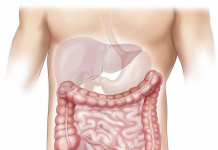A new study conducted by Nestlé Research Center along with a team from Imperial College London has found, that probiotics, such as drinking yoghurts, which contain live bacteria, may have a serious effect on the metabolism. As probiotics contain potentially beneficial bacteria playing an important role in the metabolism, they have an effect on the biochemistry of the gut microbes. Probiotics contain so-called “friendly” bacteria, which help the digestive system. The study of how exactly it occurs was the goal of the research.

Probiotics Effect Fat Amount
The researchers had used two groups of mice for figuring out, how probiotics effect the metabolism. One group had received probiotic treatment, and the other one had not. Then different metabolites in the liver, urine, blood and faeces of both groups were compared. The researchers observed many biochemical changes in how the mice treated with probiotics metabolized bile acids. These acids are produced by the liver and their primary function is to emulsify fats in the upper gut. As probiotics had an effect on the way in which bile acids are metabolized, then they can influence the amount of fat the body can absorb.
How Probiotics Influence the Metabolism
The study shows, that adding the “friendly” bacteria contained in probiotics change the makeup of the bugs in the gut. It increases the number of these bacteria and works with other bacteria in the gut amplifying their effects. Probiotics interact with other bacteria and indeed influence the local microflora. The changes probiotics bring about have to be studied further to find out the influence on overall health. But what is established is that probiotics can change the dynamics of the whole microbes population in the gut. Further researches will open up the possibility of developing new probiotic therapies and finding customized nutritional solutions to maintain or enhance health at an individual level.
Make sure you always have a healthy breakfast.










